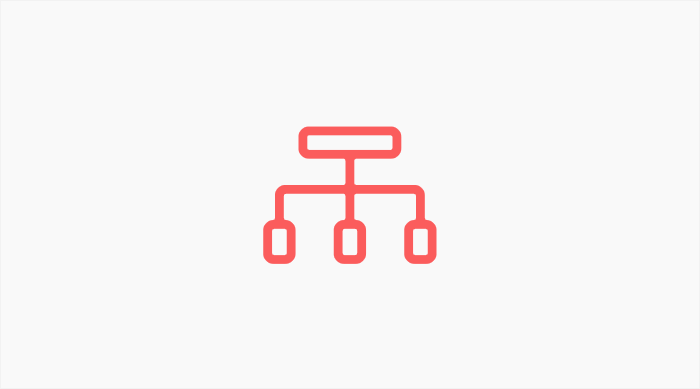What Is the Difference Between a Blog and a Website

One of the best things you can do when you’re entering a new field of study, going into a new endeavor, or simply trying out something new, is to ask a lot of questions. The best way to learn something new is to actively seek out knowledge, even if that means asking questions about things that everybody’s seemingly in on — except you. Like the difference between a blog and a website, what’s up with that?
When you’re starting to create a digital presence beyond what social networks can offer, it’s easy to get confused. It doesn’t help that people will sometimes use terms with different meanings in a way that almost makes them appear interchangeable.
If that’s the point where you’re at, and if you don’t understand why someone would, for example, publish an article on their website instead of their blog, you’re in the right place. We’ll try to clear things up for you. We’ll show you:

Saying that you’re publishing an article on a website is technically correct because a blog is a type of website. It just so happens that it’s the type of website you create when publishing content — articles or blog posts — is the thing you want to do the most.
The word “blog” in the sense we use it today came into being in the late 1990s as a shortened version of “weblog,” a word used to refer to server request logs. With the “we” part of “web,” the word also lost its original meaning and gained a new one — an online journal.
Blogs usually display their content in a reversed chronological order, allowing the people visiting them to see the newest content first. You can change this order, of course, but that’s what WordPress serves as default, and it also makes sense to have content arranged that way.
Blogs will have lots of content, and they will keep adding it regularly if they want to grow. One person can handle everything from installing and setting up the blog, through choosing the right WordPress theme for it, and populating it with content. It’s also common to see blogs as part of bigger websites. Some blogs, such as the HubSpot blog, get their own subdomains.

A website is an umbrella term for any combination of pages, posts, and content you can slap a domain name on and have people visit it. If the phrase “digital landscape” materialized into something you would be able to drive through, everything you’d see around you would be a website.
Your favorite travel blog is a website. The search engine you’re using to find things on the web is a website. Your favorite brand’s online store is a website. Your favorite internet forum is a website. Your band’s website is, well, a website. A social network is a website.
Technically, most of the things you’d be able to visit with a browser are websites. Still, we can make a distinction between the all-encompassing meaning of the word “website” and the way we use it to juxtapose it with websites. That website is usually built for promotional or sales purposes, it’s mostly made out of pages, and its contents aren’t updated too often.
How Is the Content Different?

We’ve mentioned before that blogs use posts to publish the content. While posts can contain any kind of multimedia content, blogs have traditionally been associated with textual content above any other. You can create this type of content relatively quickly and without significant costs, which goes to contribute to the blogs’ proclivity to have a lot of content.
As opposed to blogs, websites might put more emphasis on static content served via pages. Think about landing pages, about us pages, or service or product pages — you won’t see these change regularly, and rarely without a very good reason. Creating pages for a website can be more resource-intensive than creating posts, and it might require contributions from several specialists. A single page can require the work of a graphic designer, web developer, copywriter, and sales specialist.
How Is the Organization Different?

On a WordPress blog, posts are ordered chronologically unless you change the order. Depending on the theme you use, you can list them all with an infinite scroll, using an archive widget, and even make them searchable with a search bar. Some blogs use pages to list their most important posts and make them stand out, but that’s usually as much structure as you’ll be able to get. You can also use tags and categories to sort them.
Pages, on the other hand, aren’t sorted at all — you’ll usually find them in a menu or the footer of the website. Having a good menu is extremely important for the user experience as it greatly contributes to the ability of the user to find what they need on the website. Usually, a website will have a front page that contains a way for users to get to all the other pages on the website via a menu or a search bar.
Do They Differ in Purpose?

The main purpose of having a blog is to have a place where you’ll publish content. Now, if the blog is a part of your business website and you’re only blogging for SEO purposes, then you can say that you need the blog to cater to search engine algorithms. Even though it is, in itself, a bad SEO strategy.
The one thing blogs might be better at than websites is in creating a space where the reader can join in on the conversation. All you need to do is enable the comments and your blog can be a place where people gather to communicate in a way you don’t often see on business websites, for example. If you want people to communicate with you via a regular website, you’ll need to use a pop-up or a form. Then again, you won’t have to spend time moderating comments.
But that doesn’t mean that websites don’t communicate with visitors. You can use your website to communicate your brand’s message, your personal expertise, or your products’ superiority over the competition’s. That communication is, however, one-way communication by design, and it lets you talk at the visitors, instead of with them.

The good news is that you don’t have to keep a strict line between having a “website” and having a “blog.” You can have elements that are usually associated with websites on your blog, just like you can have a bona fide blog on your website as part of your content marketing strategy.
What’s important, however, is that you understand what you need. If your blog hosts several types of content — product reviews, industry gossip, and tutorials — it makes perfect sense to help users reach the content they want with a menu. It also wouldn’t hurt to create a couple of pages, including one that lets your readers know who you are, what are the most important pieces of your content they should read, and even the one that lists your privacy policy.
As for blogs that end up on websites, it’s usually a marketing thing. It might be an effort to get a better place in search engine results, a way to establish yourself or your business as an industry thought leader, or provide important information about your products or services to your potential customers. Based on these criteria, you’ll have a clearer picture of how much of a website you need in your blog, and how big of a blog your website could use.
Let’s Wrap It Up!
One of the greatest things about WordPress is just how easy it is to use it to create a blog or a website. When you’re faced with a fresh installation and you’re ready to choose a theme, you have a blank canvas ready for you to paint on. Will you create an awesome blog or a sleek business website? Or will you decide to take a middle path and combine the two? The choice is entirely up to you.




